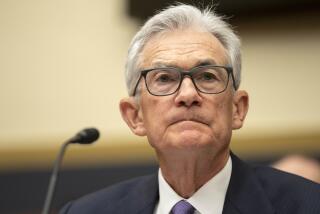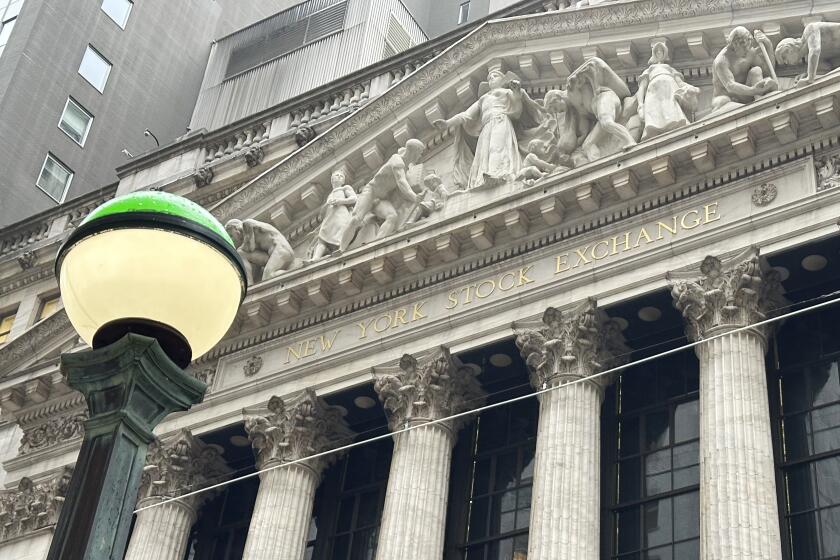Fed policymakers leave short-term interest rates unchanged
WASHINGTON — Federal Reserve policymakers held steady on their new stimulus program, noting some improvement in household spending and an uptick in inflation since the effort began last month.
In a statement after its two-day meeting Wednesday, the Federal Open Market Committee left short-term interest rates unchanged and reiterated that it planned to keep them at their current level at least through mid-2015 because of the struggling economic recovery.
Six weeks after the Fed fired what might be its last bullet to try to strengthen the recovery, analysts did not expect the central bank to make any major new announcements Wednesday.
Fed policymakers complied, making only some slight revisions in its view of economic conditions from their statement at the end of September’s meeting.
The assessment of overall growth was the same, with the Fed saying that “economic activity continued to expand at a moderate pace in recent months.” Despite recent signals of a housing recovery, the Fed reiterated that the sector “has shown some further signs of improvement, albeit from a depressed level.”
The only changes in language came in referring to household spending, which the Fed said “has advanced a bit more quickly,” and to inflation, which the Fed warned had “recently picked up somewhat, reflecting higher energy prices.”
The Fed said last month that it would start buying $40 billion worth of mortgage-backed securities every month to try to stimulate stronger job growth.
Unlike two earlier rounds of such stimulus efforts, the Fed left the program open-ended. The purchases would continue, it said, until the labor market improved substantially.
The Fed repeated that promise Wednesday.
The goal of the stimulus — formally known as quantitative easing — is to help drive mortgage rates lower to stimulate the housing market. And mortgage rates have fallen since mid-September. The average 30-year fixed-rate mortgage was 3.37% in the week that ended Oct. 18, just off a record low of 3.36% set two weeks earlier, according to mortgage financing giant Freddie Mac.
In recent weeks, the housing market has shown signs of a rebound. On Wednesday, for example, the Commerce Department reported new-home sales rose 5.7% in September from the previous month to the highest annualized rate since April 2010.
The Fed committee will meet again in December, well after the presidential election.
“Unless things take a turn for the worse, Fed policy is unlikely to change at the December meeting, and QE ad infinitum will continue with low rates expected through at least mid-2015,” said Jason Schenker, president of research and consulting firm Prestige Economics.







